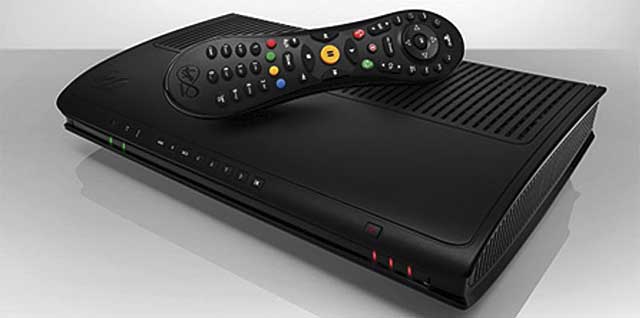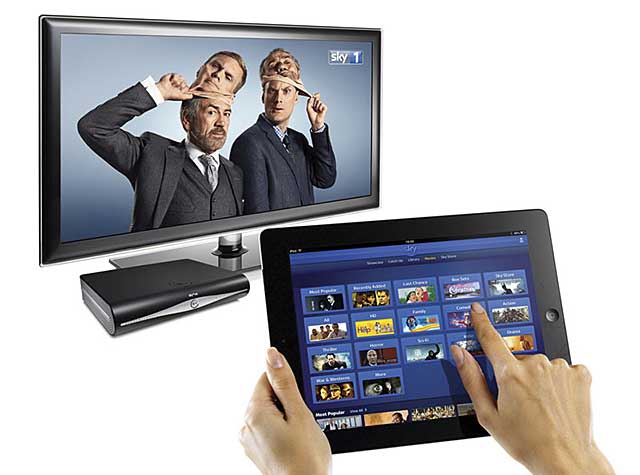The State of Multiscreen Delivery 2013
The overriding concern of operators of all stripes in Europe is to adjust their distribution and business models to reach customers outside of the primary TV screen.
Speaking at the end of 2012, the Deutsche Telekom AG SVP of global TV and entertainment, Gerry O'Sullivan, aired the central argument, saying; "If you are a pay TV operator and not providing your service on tablets and phones, you will soon find yourself out of the game. People expect it.
"OTT has a role for a traditional pay TV operator," he added. "We will do it by competing with pure OTT operators, by setting up our own OTT services, and by partnering with the best-in-breed OTT platforms. Most importantly, we will continue innovating."
In this article, we'll present an outline of some of the main developments to watch from the continent in the next 12 months.
Gateway Battle Intensifies
In some quarters, the last rites have been given for the set-top box (STB), but STB developers and cable operators are giving the hardware one last throw of the dice to stall the advance of OTT competition. In Europe, this is becoming a two-way battle between TiVo and Liberty Global, Inc. to sign on operators for their respective home-gateway products that enable consumer access to content on multiscreens while maintaining an operator's consistent look and feel under a controlled environment.
"Operators need to evolve their offer from discrete set-top boxes and PVRs to a true whole-home multi-room experience, including seamless integration of both live and on-demand TV services to a variety of smart devices such as smart phones, tablets, games consoles," says Paul Bristow, VP strategy, consumer experience, and middleware for ADB. "End-users want to access content on all these devices, and if we don't meet that demand, we leave the way open for new competing services to enter the home."

After its success at Virgin Media in the U.K. and ONO.es in Spain, TiVo will deploy with Con Hem in Sweden in early 2013.
With an installed base of 8 million homes, Europe's largest cable operator, Liberty Global, debuted its next-generation platform, Horizon, with UPC Nederland last September and launched with Switzerland's UPC Cablecom in January. Germany's Unitymedia Kabel is up next; it is planned for 1Q 2013.
Horizon relies on video gateways manufactured by Samsung, the NDS Snowflake GUI, a video on demand (VOD) system powered by SeaChange International, and Nagravision's encryption system. It not only creates an in-home wireless network connecting the TV to personal devices supported by search and recommendation features, it allows customers to take their entertainment experience onto second screens outside the home.
Niall Curran, president of Liberty Global's content arm Chellomedia, told the Digital TV World Summit that pay TV customers wanted content on devices with which they have "intense relationships," adding, "we've got to be on smartphones and tablets as part of the pay TV OTT service."
TiVo, meanwhile, has been a huge success at Virgin Media, which was acquired by Liberty Global as this issue went to press. Since its launch in early 2011, TiVo subscribers account for more than 1 million or 30% of the cable company's customer base. It has also deployed with ONO.es in Spain and will go live this quarter with Con Hem in Sweden.
According to TiVo's vice president and general manager of international, Joshua Danovitz, Europe is the perfect environment in which to launch next-gen services.
"Operators are most likely to make a major investment in their networks where the competitive landscape intensifies," he says, citing the U.K. as an example. "For years, Sky was seen as the gold standard for user experience in Europe. Virgin Media is now offering something better than Sky. They have used TiVo in a very strategic way to go up against the competition by bringing broadband content onto the platform."
However, Danovitz says we should be looking toward Con Hem (which has 1.74 million households via high-speed broadband and fixed telephony) as a sign of TiVo's technology progress because it will be the first time TiVo has offered its service in-conjunction with an IPTV network.
"Operators are going through a stage of allergic reaction to putting capex into the home," Danovitz says. "We know we can deliver video into the home in different places and are putting deep thought into how you kill the expense of that, at the same time as helping operators wrestle with delivering an excellent user experience and keeping bandwidth low."
He outlined two broad strategies faced by operators. "There are those that offer the thinnest client and throw all the bits over the network, which takes the box out of the home and may or may not have home connectivity or a decent user experience," he says.
"At the other extreme there is the home gateway of a robust but still modestly priced box coupled with inexpensive clients in the home [such as TiVo's $129 Stream, which is designed to stream video over the home network to multiple devices, though it has yet to launch in Europe], for those operators who believe that the cost of that box is less than the cost of delivering content to all devices directly.
"If you have a box like ours with transcoding capability, operators can deliver content for free around the home," he adds. "We are currently seeing operators taking both strategies but in the long run -- as bandwidth capacity increases -- we will see operators move toward the first strategy. Up for debate is whether operators are on their last box project, or their penultimate box project or whether they are two away?"
While rights will be tricky to negotiate for delivery of content to multiple screens, Virgin Media is already pointing the way with a networked service provisioned from the cloud.
Virgin TV Anywhere, which launched last November, enables users to stream live TV online and to mobile iOS and, soon, Android devices.
"The TV Anywhere products are the first steps down the path of taking everything into the cloud since we are using customer-supplied devices as second screens to stream video in and out of the home," says Ian Mecklenburgh, Virgin's director of consumer platforms and devices.
"The big switch from proprietary box to cloud is not going to happen overnight," he adds. "You will see these things co-exist, complementing our core product with streaming services from the cloud."
Liberty Global and TiVo aren't the only players in town. In Portugal last May, Zon Multimédia launched Iris, based on NDS Snowflake.
Jonathan Beavon, NDS' vice president of segment marketing, says that operators looking to develop next-gen platforms should plan for a gradual transition to headend -- or cloud-based -- features once their networks are ready.
"Cable operators should support home-gateways and STBs, as well as headend-based features for the next few years," he says. "Cable upgrades won't happen at once, given [that] they need to be balanced with the budgets."
Satellite operators are not shy of taking the fight to OTT either with Europe's dominant player BSkyB, which generates more than £1 billion (about $1.6 billion) in profit annually, showing the way.
Sky Innovates On-Demand
With predictions by some analysts that by having amassed 11 million subscribers its base would plateau and be at risk of undermining from OTT players, the U.K.'s leading pay TV provider unleashed a double whammy of online services.
With Mike Darcey (then Sky COO, since promoted to News International CEO) stating, "We don't see OTT as a threat," Sky launched VOD service Now TV in July to offer streaming of Sky Movies either via subscription or pay-per-view. This was since joined by a range of entertainment channels and is soon to be augmented with live streaming of its Sky Sports portfolio.
Then, earlier this year and ironically in the same week that Blockbuster closed a third of its 580 U.K. stores (Jan. 19), Sky launched download-to-own service Sky Go Extra.
Sky's successful VOD service Sky Go has allowed subscribers to stream its programming to tablet and phones since mid-2011 and is used by 3 million Sky customers who can now pay an additional £5 (about $7.9) a month to download U.K. film releases such as Skyfall, about 6 months after they launch in the cinema -- making it the only place consumers can go to for the latest blockbusters in the U.K. Netflix may have more TV content and LOVEFiLM a larger back catalogue of film, but Sky Movies and its mobile service Sky Go can claim to offer two-thirds of the top 100 post-cinema movie releases before anyone else in the country.

Sky continued to expand its OTT services in 2012, with the addition of Sky Go Extra.
The U.K.'s Competition Commission had considered Sky's deals with six of the big film studios to restrict competition in a ruling of August 2011. However, last May it overturned those findings stating that Sky's grip on the pay TV movie market had actually been weakened by the arrival of streaming services Netflix (which made its European debut a year ago) and LOVEFiLM.
"The way customers are thinking about the whole TV experience is changing again, and it's ultimately all about the content -- however people want to watch it," noted Luke Bradley-Jones, Sky's brand director for TV products.
The addition of downloads follows in the footsteps of the BBC, which enabled iPlayer app users to download content in September, helping drive digital entertainment download revenues past £1 billion (about $1.6 billion) for the first time in 2012.
In statistics released by the Entertainment Retailers Association (ERA), digital accounts for nearly a quarter of the total entertainment market, although the overall U.K. home entertainment market declined 12% in 2012 to reach £4.21 billion (about $6.7 million).
Video gaming takes the biggest chunk at £552 million (about $871.6 million), according to the ERA, but online video sales saw the biggest increase between 2011 and 2012, rising 20% to hit £97.9 (about $154.6 million).
ITV Trials Micropayments
On-demand and pay strategies are also a huge part of ITV PLC's commercial longevity, and 2013 is perhaps shaping up to be a definitive year. The U.K.'s largest commercial broadcaster is entering the final phase of a 5-year plan to transform its fortunes and achieve 50% of revenues from nonadvertising sources by 2015.
ITV chief executive Adam Crozier's intention is to grow online, subscription services, and production revenues to relieve dependence on the volatile ad market. The online piece is arguably the most important for long-term survival.
In 2010, ITV's digital revenues were just £28 million (about $44.2 million). It has since increased the distribution of its online TV service, ITV Player, to platforms including Sky Anytime, Virgin Media, and devices such as PS3, and Android and Apple phones. It has struck distribution deals for shows it produces as ITV Studios (e.g., Downton Abbey) to LOVEFiLM and Netflix, and it introduced a paywall for rental of archive programming on ITV Player (developed with content security specialist Irdeto and payment provider PayWizard).